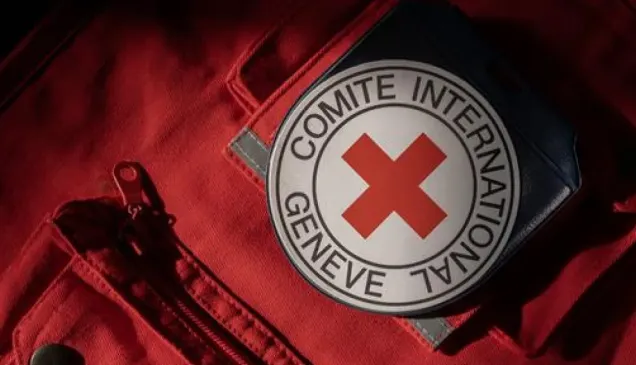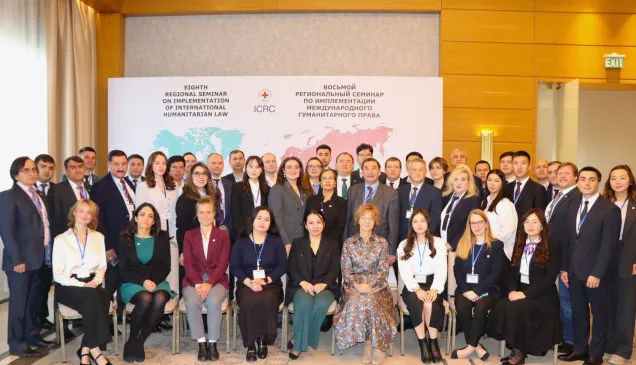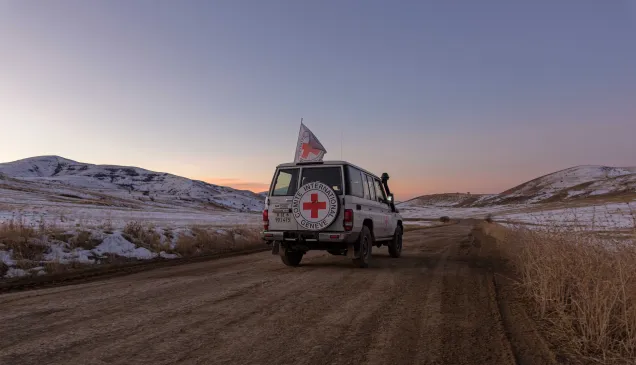In the early 1990s, as the conflict escalated, it claimed thousands of lives and displaced large numbers of people across Azerbaijan. While many fled, countless others remained in communities heavily affected by the war, living with uncertainty and in urgent need of assistance. The International Committee of the Red Cross (ICRC), in close collaboration with the national authorities and the Azerbaijan Red Crescent Society (AzRCS) provided critical humanitarian assistance to those most affected by the conflict. As the ICRC closes its Delegation in Azerbaijan after more than three decades of continuous presence, we look back on how we adapted to changing needs of conflict affected communities, supported their resilience and helped strengthen the capacity of our partners.
Azerbaijan: The impact of three decades of humanitarian action
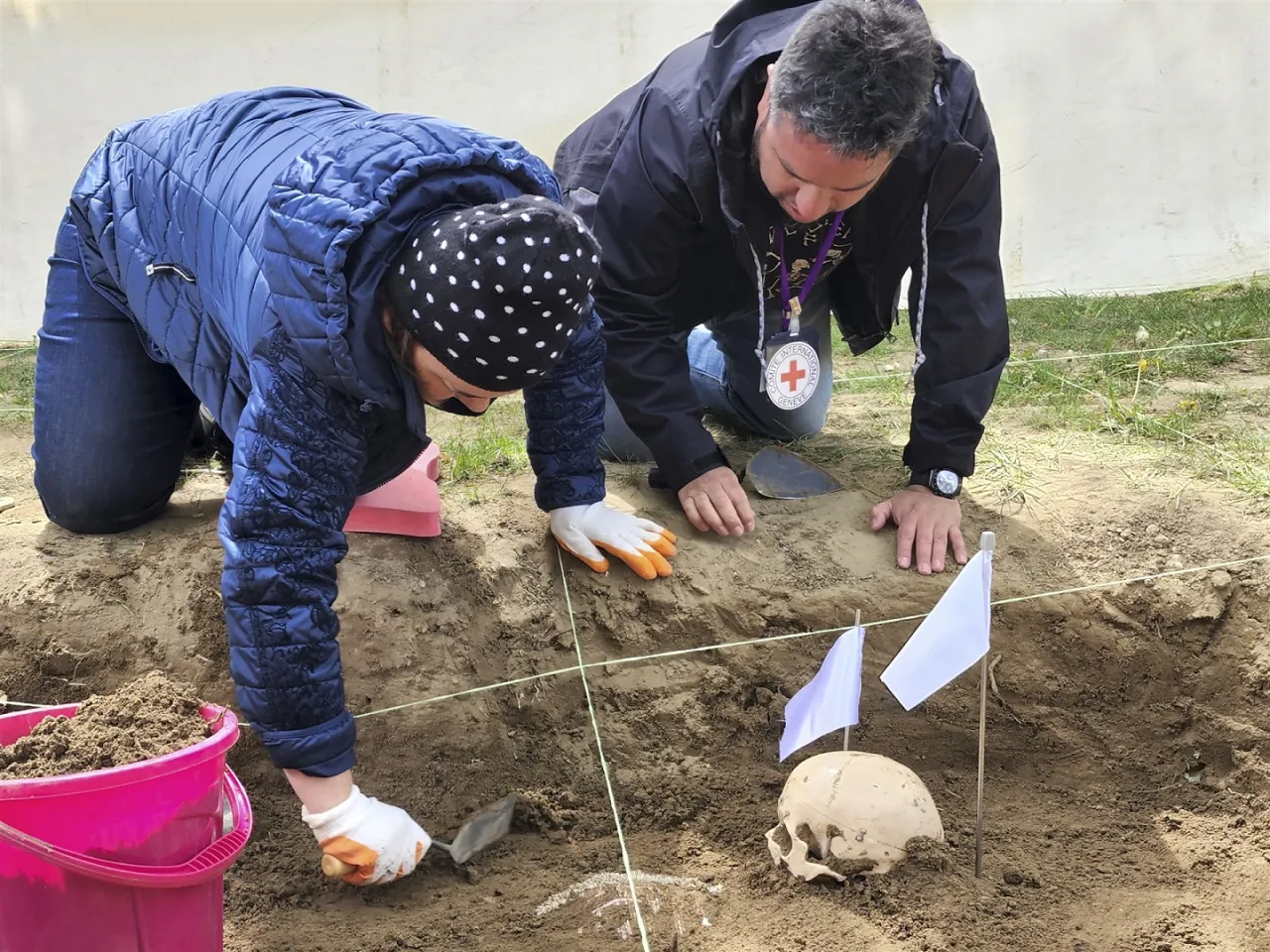
Baku, 2022. An ICRC forensic team gives a training to representatives of different Azerbaijani institutions involved in the search for missing persons.
Since the 1990s, the ICRC has worked with national authorities and communities to clarify the fate of the missing. To date, we submitted eight official lists of missing persons to the State Commission on Prisoners of War, Hostages and Missing Persons, with around 4,000 cases registered.
Over this period ICRC has provided forensic training to more than 300 professionals from relevant agencies. This initiative reflects our continued commitment to supporting families and communities who, decades after the conflict, are still waiting for answers.
Visiting Places of Detention
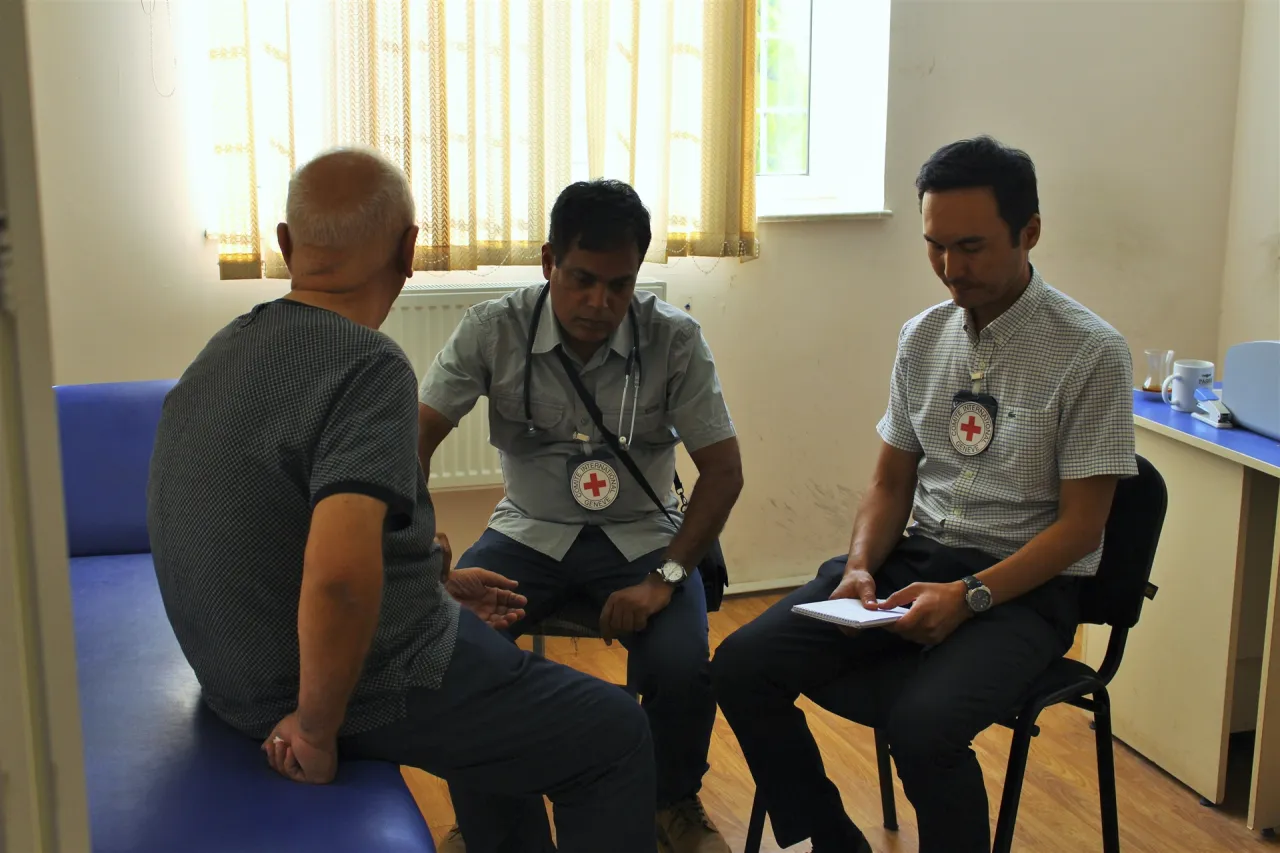
Baku, 2017. The ICRC visits non-conflict related detainees in order to assess their living conditions and restore family links.
Over the years, our commitment to protecting detainees remained constant, even as our approach adapted to the evolving context. A photo from the 2017 shows ICRC delegates during a detention visit, engaging with a detainee to assess conditions and treatment. Observations and recommendations were shared confidentially with detaining authorities, fostering cooperation and gradual improvements. Since 1992, these visits helped hundreds of detainees reconnect with their families and maintain crucial emotional bonds.
A defining component of the ICRC’s work in detention was its pioneering tuberculosis (TB) control program within the penitentiary system, launched in 1995 in partnership with the Ministry of Justice. By 2011, the number of annual deaths among detainees had dropped from several hundred to around 20 — a significant step forward in the fight against TB in detention settings.
Promoting the Integration of International Humanitarian Law
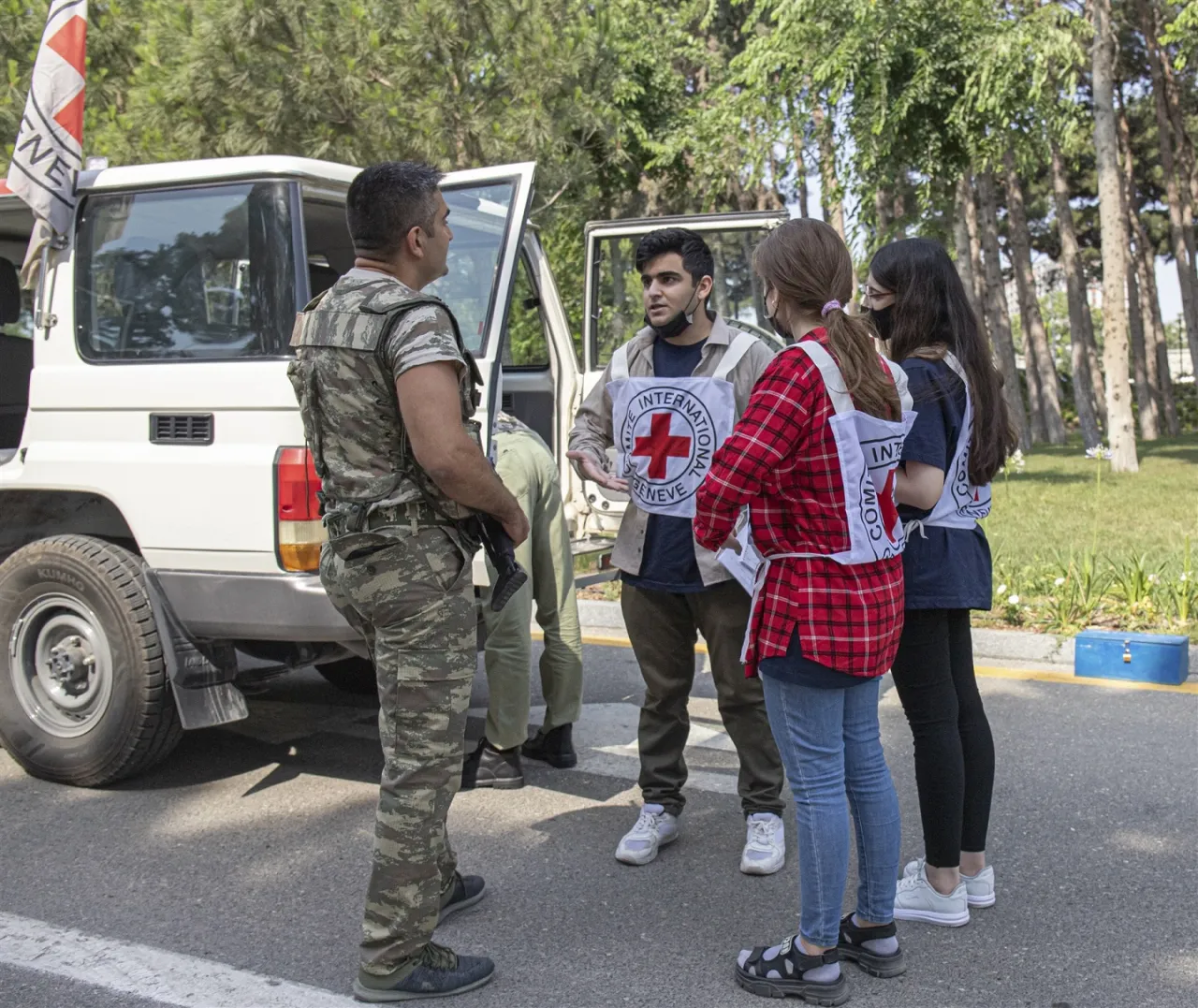
Baku, ADA University, 2021. Participants to the National international humanitarian law Moot Court organized by the ICRC.
Over the past three decades, the ICRC has worked closely with national authorities in Azerbaijan to promote and integrate international humanitarian law (IHL). In cooperation with the Ministries of Defense and Internal Affairs, tens of thousands of personnel have been trained in IHL and international policing standards, helping embed these principles into military and law enforcement practices.
This 2021 photo, taken at ADA University in Baku, shows participants in the National International Humanitarian Law Moot Court organized by the ICRC. More than 5,000 students, university professors, and legal professionals took part in IHL-focused programs, including guest lectures, moot court competitions, and study visits.
Partnership with Azerbaijan Red Crescent Society
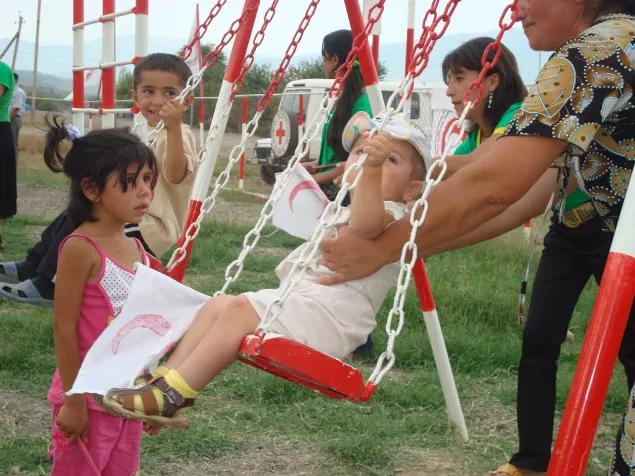
Aghdam district, 2008
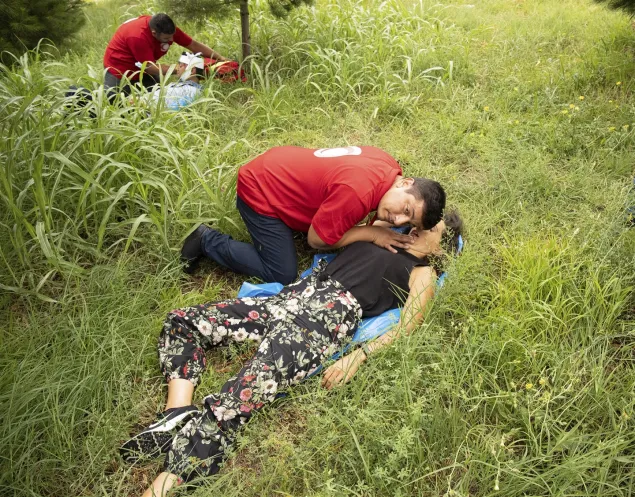
Naftalan, 2021
Over the years, our partnership with the Azerbaijan Red Crescent Society (AzRCS) remained a cornerstone of our humanitarian efforts in Azerbaijan. In these photos — taken in Zengisali, Aghdam district in 2008, children are seen playing at a newly constructed Safe Play Area. In Naftalan in 2021, AzRCS volunteers participate in the training to foster their skills in first aid.
Since 1992, this collaboration has been vital in delivering aid, supporting displaced communities, and ensuring access to first aid and medical care. From the 2000s onward, the partnership expanded to include mine risk awareness, access to education, water and hygiene, psychosocial support for conflict-affected individuals, and economic assistance for vulnerable communities. Alongside these efforts, the ICRC also contributed to strengthening the AzRCS’s capacity—supporting the development of its staff, volunteers, and field offices to help ensure the continuity of vital humanitarian services.
Addressing the Impact of Weapon Contamination
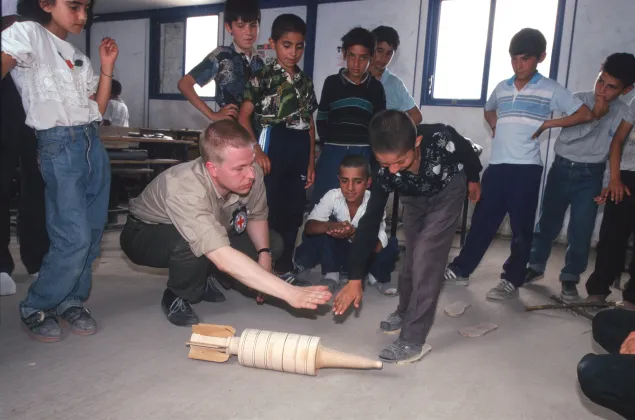
Barda, 1997
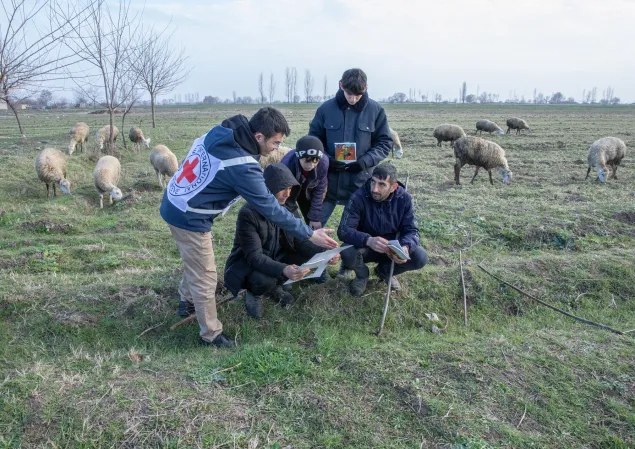
Tartar, 2024
Due to the conflict, Azerbaijan remains one of the countries heavily contaminated by landmines and explosive remnants of war. In these photos — taken in Barda in 1997, where schoolchildren were shown the dangers of anti-personnel landmines, and in Tartar in 2024, where ICRC staff members informed residents about the risks of explosive remnants of war — reflectour long-standing commitment to helping protect communities from these dangers.
Following hostilities in 2020, we intensified our outreach to deliver lifesaving Risk Awareness and Safer Behavior messages to as many people as possible, helping communities stay safe in contaminated environments. Together with AzRCS, over 100,000 individuals in affected communities were provided with lifesaving information between 2022 and 2025 on how to recognize and protect themselves from explosive hazards.
Improving Access to Health Care
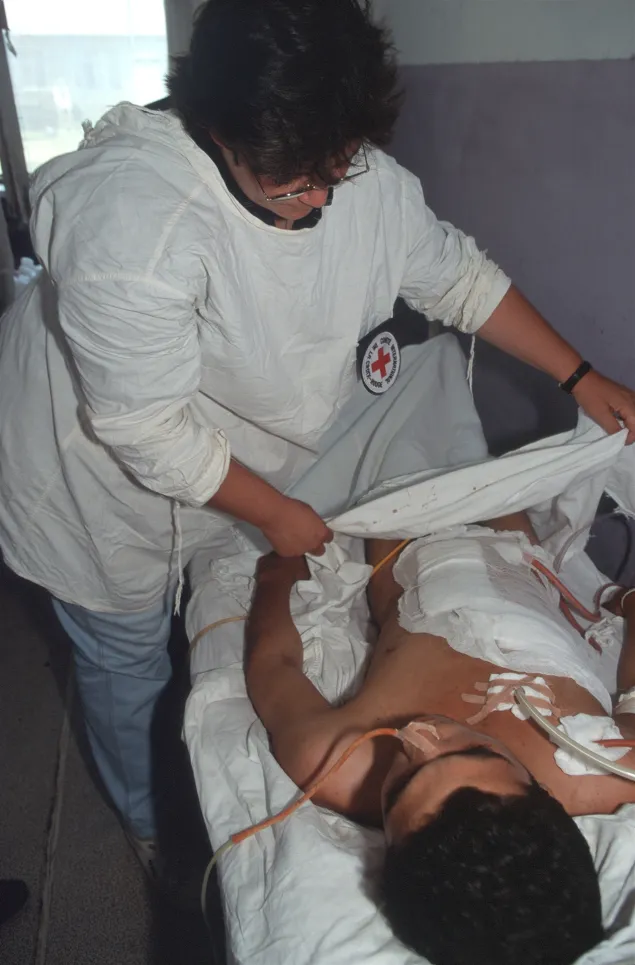
Barda, 1994
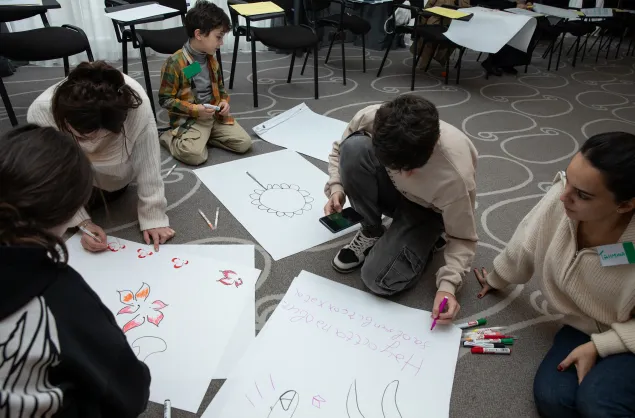
Baku, 2024
Since the 1990s, the ICRC’s medical team provided critical care to the sick and wounded amid the challenges of the conflict-affected areas. The first photo depicts an ICRC nurse conducting a thorough review of a patient care in 1994. The ICRC supported these efforts by distributing essential medical supplies and surgical materials, to hospitals treating war casualties. Through close collaboration with national institutions, our efforts have created a lasting impact, helping to ensure continued access to healthcare even beyond the ICRC’s direct presence.
Recognizing the invisible wounds left by conflict, the ICRC launched the Mental Health and Psychosocial Support program in the early 2000s, initially supporting families of missing persons through psychological assessments, peer support networks, and counselling provided to help them cope with prolonged uncertainty and grief. As needs evolved, the program expanded to reach conflict-affected communities, mine survivors, repatriated individuals, and others.
Increasing Access to Education in Conflict-Affected Communities
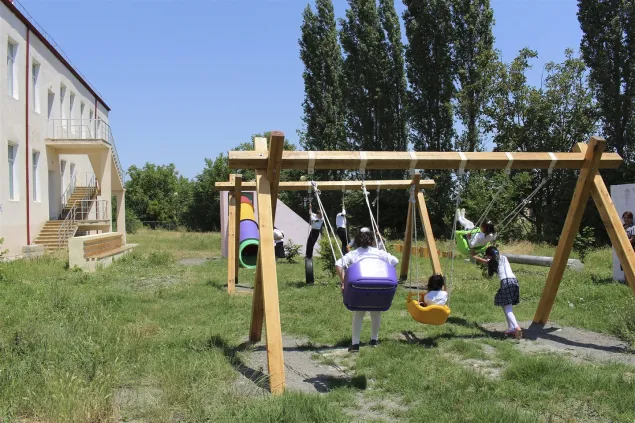
Hajimammadli village, Aghdam, 2018
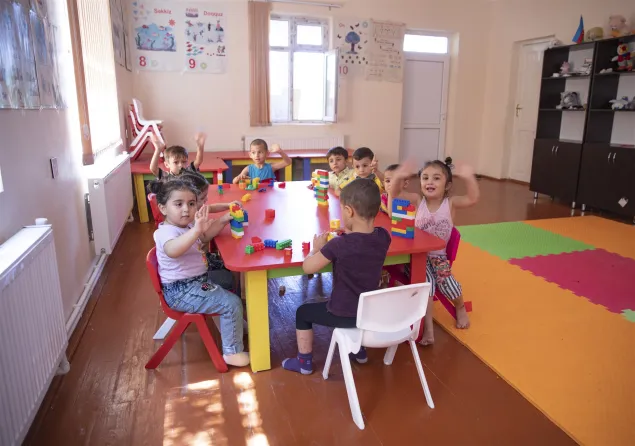
Tezekend village, Aghdam, 2022
In close partnership with the Ministry of Science and Education of the Republic of Azerbaijan, the ICRC’s Access to Education Program was instrumental in conflict-affected communities by promoting safe learning environments, improving infrastructure, and supporting the most vulnerable children and families. These photos from 2018 and 2022 show educational facilities rehabilitated by the ICRC. Building on this foundation, between 2021 and 2023, the ICRC rehabilitated 25 schools and 6 kindergartens, restoring safe spaces where children can learn and grow.
Meeting Urgent Needs and Improving Livelihoods
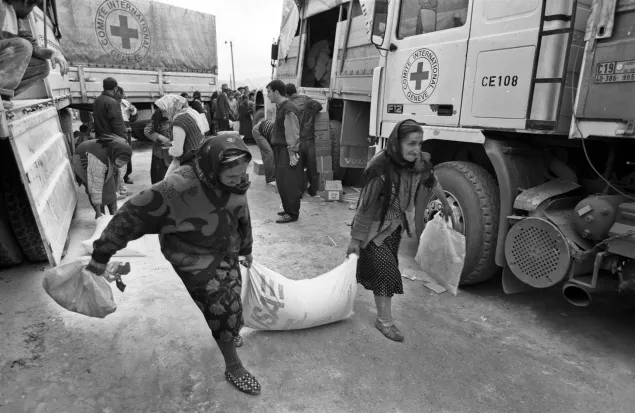
Gadabay, 1997
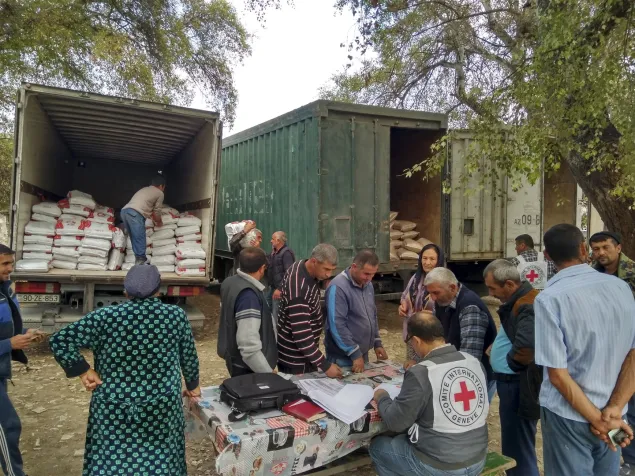
Aghstafa, 2018
Since the 1990s, the ICRC played a vital role in strengthening the economic resilience of conflict-affected communities in Azerbaijan. This 1997 photo captures the distribution of food aid to 1,240 families as emergency relief for those affected by conflict. Transitioning from emergency assistance to development-focused programs, the ICRC laid the groundwork for long-term recovery and greater self-sufficiency.
In 2018, with the support of the AzRCS, ICRC staff distributed fertilizers to residents of the Aghstafa district, addressing the specific needs of affected communities. Through these initiatives, the ICRC’s Economic Security program helped tens of thousands of people in conflict-affected areas rebuild their lives with dignity.
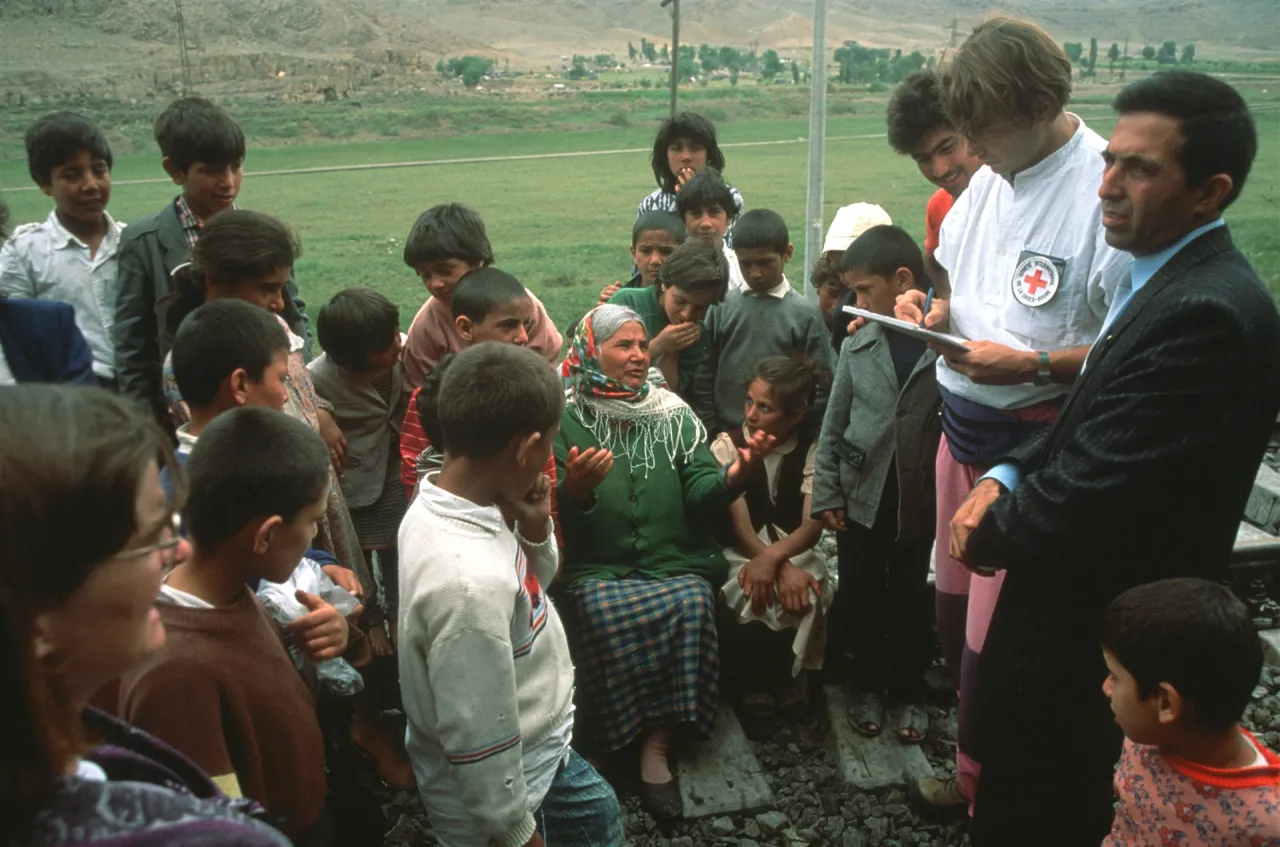
Our operations evolved alongside the shifting needs on the ground. A photo from August 1992 shows an ICRC staff member assessing the needs of displaced persons from Sadarak—part of our initial emergency response to the conflict. Yet much of our lasting impact has come through the quieter, long-term efforts that followed work, aimed at restoring dignity, building resilience, and supporting recovery in the years beyond the immediate and urgent humanitarian needs.

